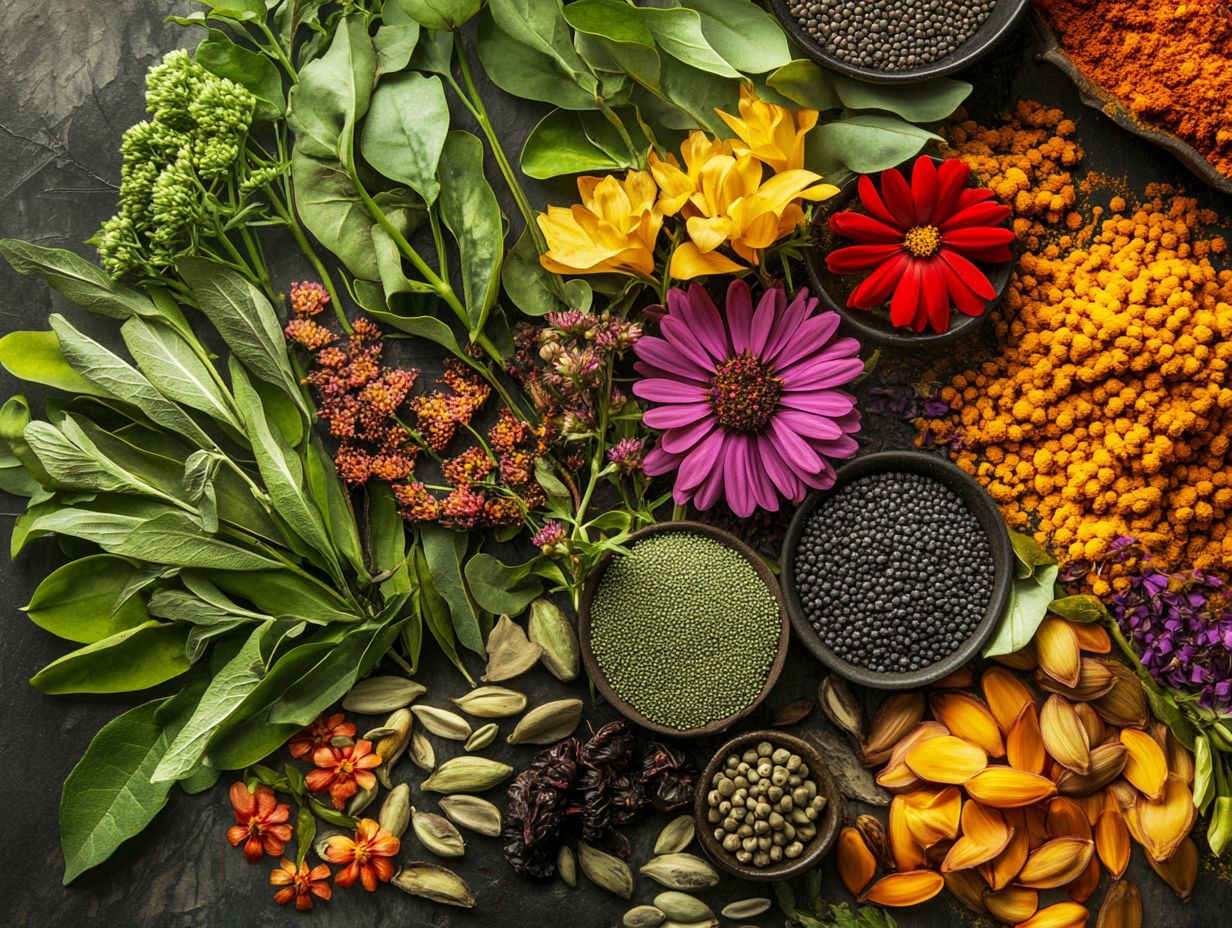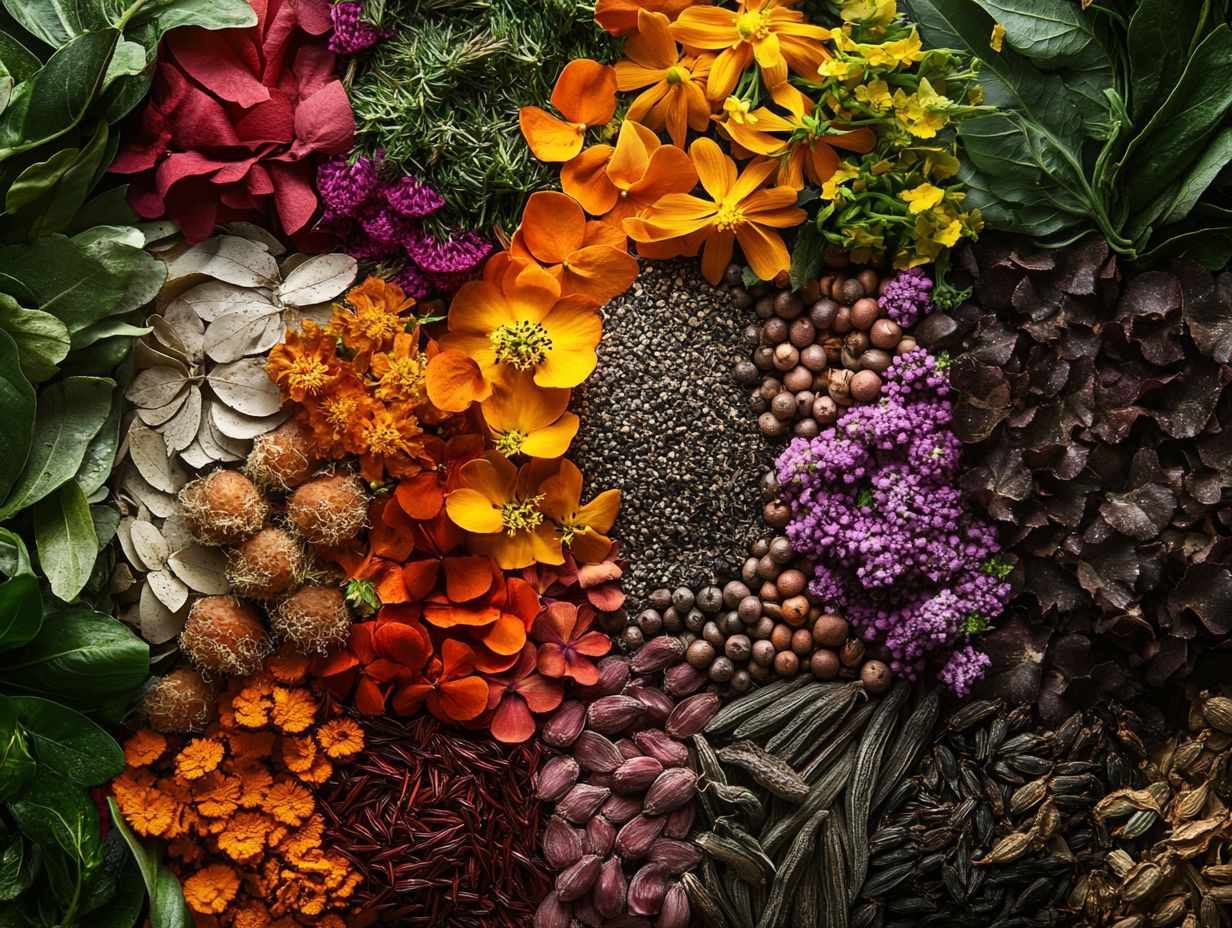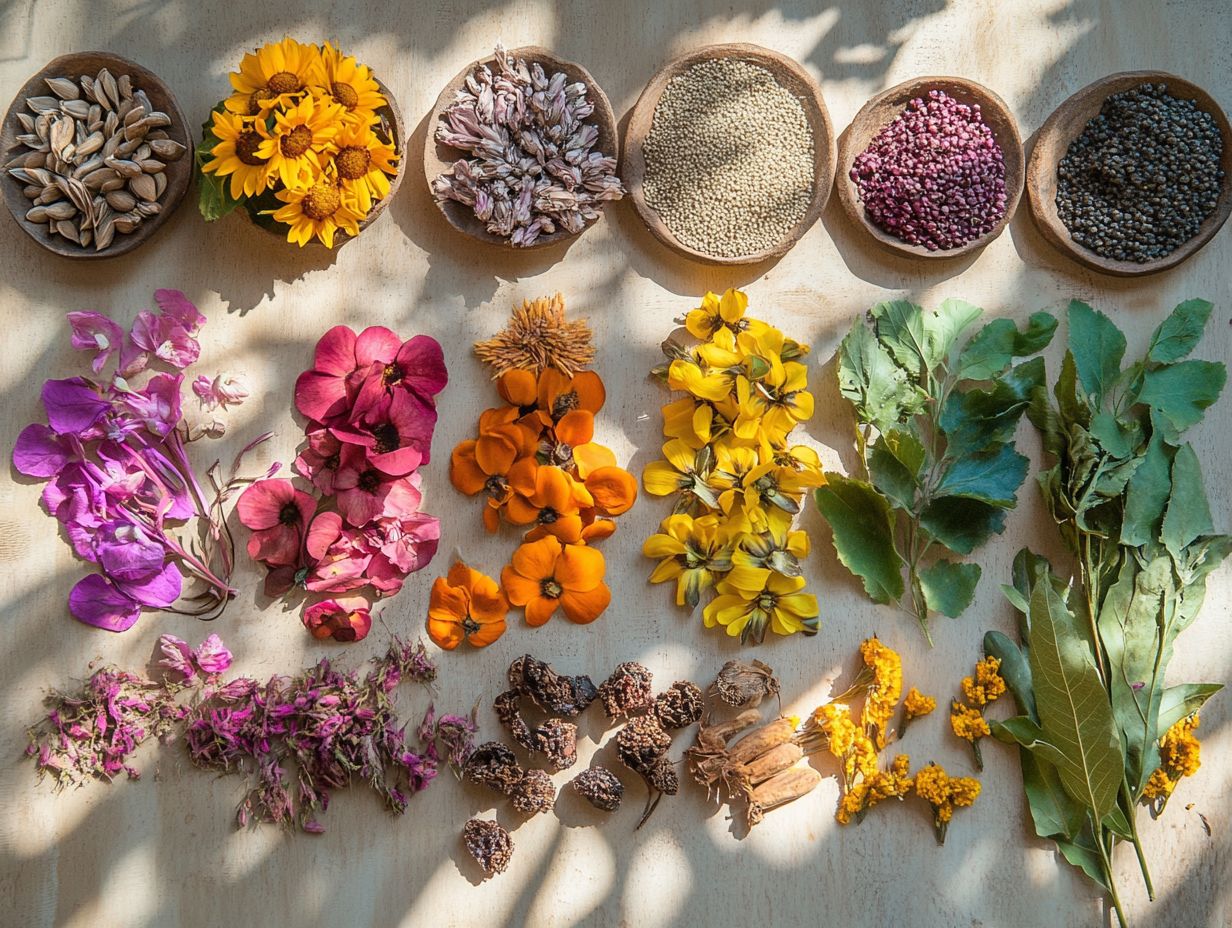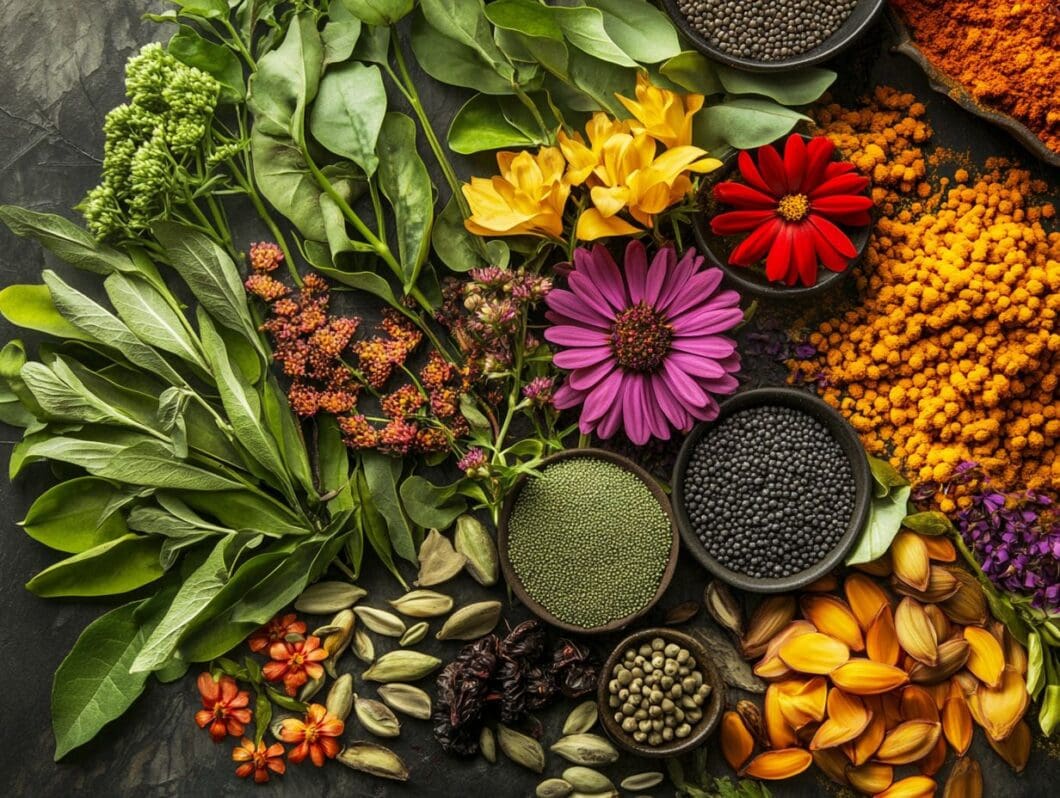African botanicals are making waves in the beauty world, celebrated for their rich heritage and remarkable benefits.
As consumers increasingly seek natural and sustainable products, these unique ingredients are gaining prominence for their traditional applications and modern uses.
From soothing oils to potent extracts, the allure of Africa’s diverse flora is captivating brands and beauty enthusiasts alike.
This article explores the rise of these botanicals, their benefits, common ingredients, and tips for incorporating them into your routine, while also highlighting essential safety precautions.
Join us as we uncover the future of African botanicals in the beauty industry!
Key Takeaways:

The Rise of African Botanicals
The emergence of African botanicals in the beauty industry signifies a notable trend toward eco-luxury brands that emphasize sustainability and natural ingredients. An increasing number of beauty bloggers are advocating for these potent actives, leading brands such as African Botanics to gain recognition for their distinctive skincare formulations that combine traditional knowledge with modern botanical pharmacology.
This shift extends beyond mere aesthetics; it corresponds with a broader movement toward responsible beauty practices that honor biodiversity and the rich heritage of African plant extracts.
Exploring the Growing Trend
The trend of incorporating African botanicals into luxury skincare is currently being examined by beauty bloggers who emphasize their numerous skincare benefits and distinctive properties.
These influencers play a crucial role in shaping consumer perceptions, frequently showcasing ingredients such as Marula oil and Rooibos, which are gaining considerable attention within the beauty community. For example, Marula oil, renowned for its nourishing attributes, is particularly effective for sensitive skin, providing hydration without causing irritation. Likewise, Rooibos, which is abundant in antioxidants, is praised for its anti-aging advantages, helping with the reduction of fine lines and promoting a youthful complexion.
Social media platforms serve to enhance these discussions, enabling beauty enthusiasts to share testimonials and tutorials that illustrate the transformative effects of these botanicals. This ultimately contributes to an increasing demand for natural, effective skincare solutions inspired by Africa’s rich botanical heritage.
Benefits of African Botanicals

The advantages of African botanicals in skincare are numerous, providing potent antioxidants and anti-inflammatory properties that significantly enhance skincare routines.
Ingredients such as Marula oil and Baobab are highly regarded for their nourishing and rejuvenating effects on the skin.
Additionally, botanical extracts like Rooibos and Chebula function synergistically to improve skin texture and overall appearance, establishing them as essential components in premium skincare products.
Traditional Uses and Modern Applications
The traditional uses of African botanicals significantly inform contemporary applications in skincare, as brands such as African Botanics integrate time-honored skincare rituals into their cleansing oils and treatment serums.
These ancient practices, deeply rooted in rich cultural heritage, underscore the remarkable efficacy of local ingredients, including marula oil, baobab, and kelp extract. Historically, communities across the continent have utilized the healing properties of these botanicals to address various skin concerns, ranging from dryness to inflammation.
Today, this extensive knowledge not only inspires modern formulations but also serves to bridge the gap between tradition and innovation. By employing advanced scientific techniques, contemporary skincare brands are able to transform these potent ingredients into effective solutions that meet the demands of modern skincare needs, ensuring that the wisdom of the past continues to be relevant in today’s beauty rituals.
Common African Botanical Ingredients
Common African botanical ingredients in skincare collections frequently feature notable elements such as Marula oil, recognized for its nourishing properties, and Silver Rescue Cream, which offers restorative benefits through the incorporation of colloidal silver.
Overview of Popular Ingredients

An overview of popular ingredients from African Botanics highlights a diverse array of eco-friendly products that provide numerous skincare benefits, including potent antioxidants and soothing properties.
These naturally derived components are widely recognized for their efficacy in addressing various skin concerns, ranging from dryness to premature aging. For example, baobab oil, frequently utilized in premium facial masks and moisturizing creams, is celebrated for its high vitamin C content, which promotes collagen production and imparts a radiant glow.
Similarly, marula oil, known for its exceptional absorption properties, is rich in fatty acids, making it a preferred choice for individuals seeking replenishment and hydration.
The incorporation of rooibos extract in various formulations further enhances skin health due to its anti-inflammatory properties, effectively calming redness and irritation. By integrating these powerful ingredients into daily skincare routines, individuals can achieve significant improvements in the overall appearance and texture of their skin.
How to Incorporate African Botanicals into Your Routine
Incorporating African botanicals into one’s skincare routine can enhance daily rituals by delivering essential nourishment to the skin.
Utilizing effective skincare products, such as hydrating serums and facial oils from African Botanics, can significantly contribute to overall skin health.
Tips for Choosing and Using Products
Choosing and utilizing African Botanics skincare products effectively necessitates a thorough understanding of your skin’s unique needs, particularly if you have sensitive skin that benefits from nourishing oils and potent ingredients.
It is essential to adopt a personalized approach, ensuring that each product aligns with your skin’s characteristics and addresses any specific concerns. Begin by conducting a patch test to assess how your skin reacts to a new product, especially those containing active ingredients that are particularly potent. Careful examination of ingredient labels is imperative, as this allows you to identify components that may cause irritation or exacerbate existing issues.
Additionally, exploring various formulations, such as treatment serums designed for hydration or exfoliating polishes that gently remove dead skin cells, can enhance your skincare routine, ultimately leading to healthier and more radiant skin overall.
Potential Risks and Side Effects

While African botanicals provide numerous benefits, it is crucial to recognize the potential risks and side effects, especially for individuals with sensitive skin. Such individuals should take specific precautions when utilizing skincare products containing these botanicals.
Precautions and Warnings
Understanding the precautions and warnings associated with skincare products is essential, particularly for individuals with sensitive skin, to prevent adverse reactions and ensure the safe application of potent actives and botanical extracts.
This process commences with patch testing, in which a small quantity of the product is applied to a discreet area of skin, allowing for monitoring of any signs of irritation or allergic reaction over a period of 24 to 48 hours. For those with particularly delicate skin, consulting with a dermatologist can offer tailored guidance to effectively navigate the wide variety of available ingredients.
It is also vital to be aware of potential contraindications, especially concerning specific African botanicals that may interact adversely with other treatments or exacerbate existing skin conditions. Prior knowledge of any sensitivities or allergies can facilitate a smoother transition into a new skincare regimen.
Future of African Botanicals in the Beauty Industry
The future of African botanicals in the beauty industry is promising, characterized by advancements in skincare technologies and an increasing demand for eco-friendly products that leverage the benefits of natural ingredients.
This trend is exemplified by brands such as African Botanics.
Predictions and Innovations
Predictions regarding the future of African botanicals in skincare indicate a forthcoming increase in innovations that utilize natural ingredients and botanical formulations to meet the evolving demands of discerning consumers.
As consumers become more aware of the origins of their products, there is a marked rise in interest in sustainable and ethically sourced ingredients. This shift may result in significant advancements in extraction techniques that preserve the integrity of these valuable botanicals while minimizing environmental impact.
Furthermore, collaborative efforts with local communities could usher in a new era of product formulation that not only emphasizes the unique benefits of African ingredients but also supports traditional knowledge and practices.
By adopting such innovations, the skincare industry has the potential to effectively integrate modern science with time-honored wisdom, thereby creating products that resonate profoundly with conscientious consumers.


